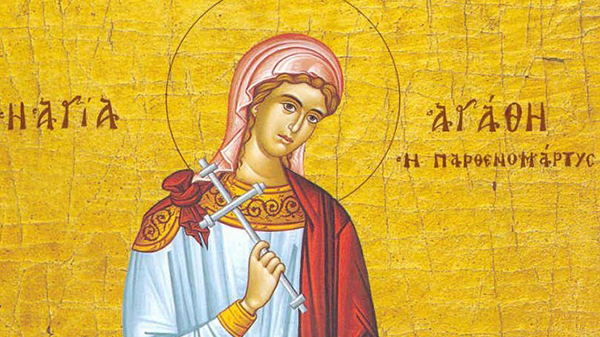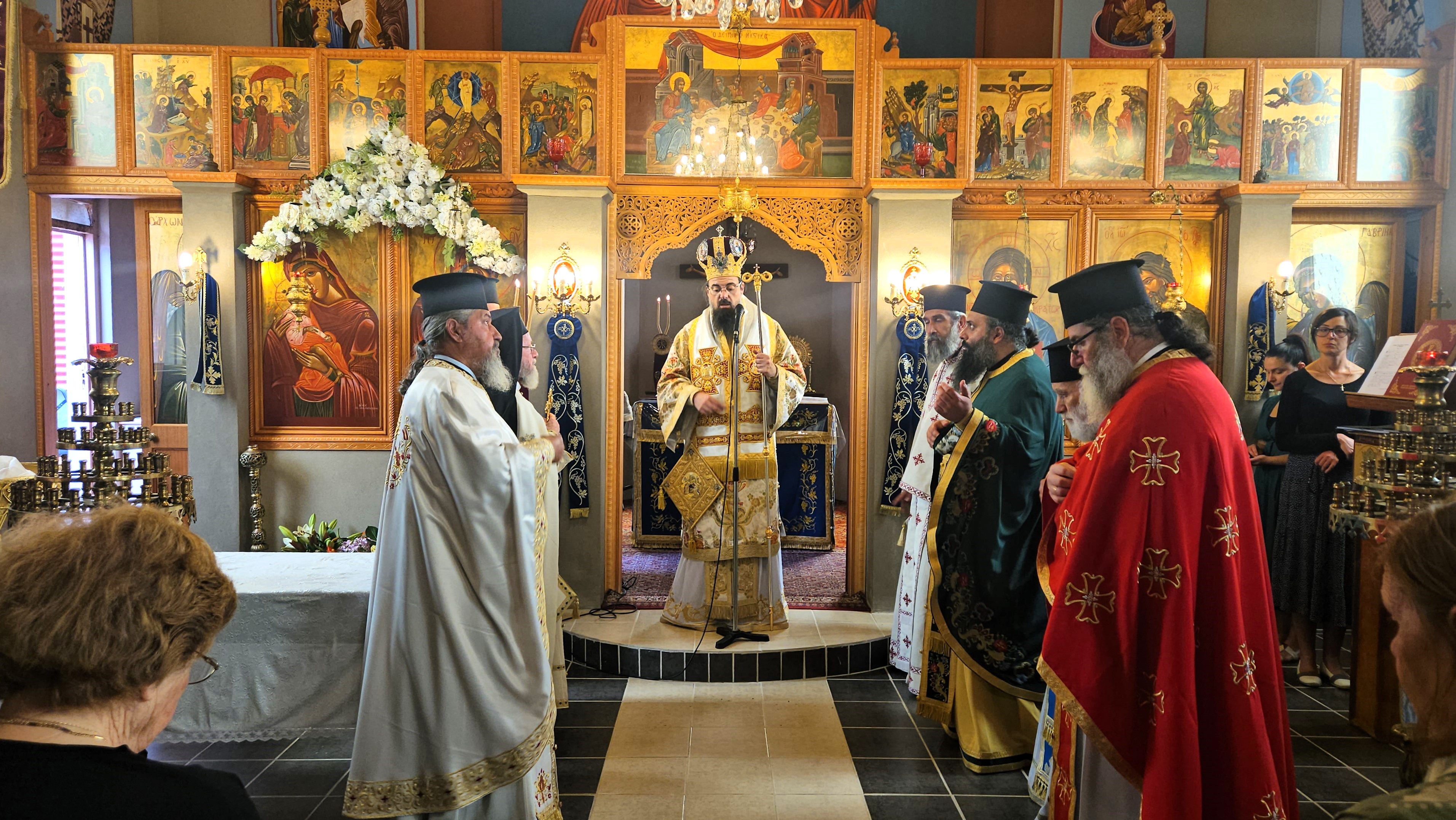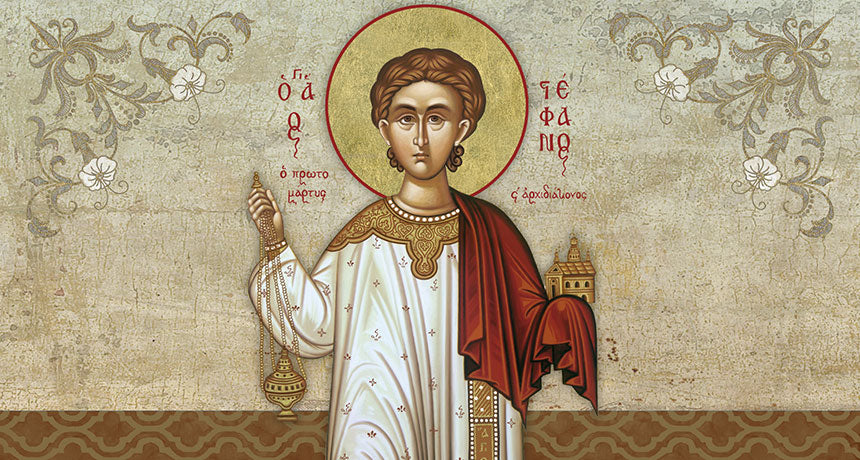Saint Agatha the Martyr ( 5 February )


This Martyr, who was from Panormus (that is, Palermo) or perhaps Catania of Sicily, was a most comely and chaste virgin. After many exceedingly harsh torments, she gave up her spirit in prison at Catania in 251, because she did not consent to the seductions of Quintian, the Governor of Sicily. At her burial, an Angel placed a stone tablet on her grave inscribed with the words, “A righteous mind, self-determining, honor from God, the deliverance of her father-land.” The following year this was fulfilled when Mount Etna erupted, spewing forth violent fire from which Catania was manifestly saved by Saint Agatha’s prayers. The holy Martyr Agatha, the protectress and chief patroness of Sicily, is, with perhaps the exception of Saint Agnes of Rome, the most highly venerated Virgin Martyr of the West. Saint Damasus, Pope of Rome, and Saint Ambrose of Milan both wrote in praise of her.
Agatha, this glorious virgin and martyr for Christ, was born in the Sicilian town of Palermo of noble and wealthy parents. When Emperor Decius began a persecution against Christians, St. Agatha was arrested and brought to trial before the judge Quintian. The judge, seeing Agatha beautiful in countenance, desired to have her for his wife. When he suggested this, Agatha answered that she was the bride of Christ and could not be unfaithful to her Betrothed. Quintian subjected her to cruel tortures.


Agatha was mocked, whipped, bound to a tree and flogged until blood flowed. After that, the judge again tried to persuade her to deny Christ and avoid any further torture and suffering. To this the bride of Christ replied: “These tortures are very beneficial for me. Just as wheat cannot arrive at the granary before it is cleansed from the chaff, so my soul cannot enter into Paradise if my body is not humbled by tortures beforehand.” Then the torturer ordered that her breasts be cut off and that she be cast into prison.
St. Peter appeared to Agatha in prison and restored her to health and wholeness of body. Again Agatha was led out for torture, and again she was cast into prison, where she gave up her soul to God in the year 251 A.D. in the town of Catania, during the reign of Emperor Decius. After her death, the torturer Quintian departed for Palermo to usurp her estate. However, along the way his horse and the horses of his soldiers became wild with rage. Quintian was bitten on the face, thrown to the ground and trampled to death. Swift was the punishment of God for the savage crime perpetrated against St. Agatha.
Apolytikion of Martyr Agatha
Fourth Tone
O Lord Jesus, unto Thee Thy lamb doth cry with a great voice: O my Bridegroom, Thee I love; and seeking Thee, I now contest, and with Thy baptism am crucified and buried. I suffer for Thy sake, that I may reign with Thee; for Thy sake I die, that I may live in Thee: accept me offered out of longing to Thee as a spotless sacrifice. Lord, save our souls through her intercessions, since Thou art great in mercy.
Kontakion of Martyr Agatha
Fourth Tone
Let the Church be clad today with royal purple in a splendid covering dyed in the chaste and hallowed blood of Martyr Agatha, and let it now cry: Rejoice, O thou boast of Catania.
Source: goarch.org




